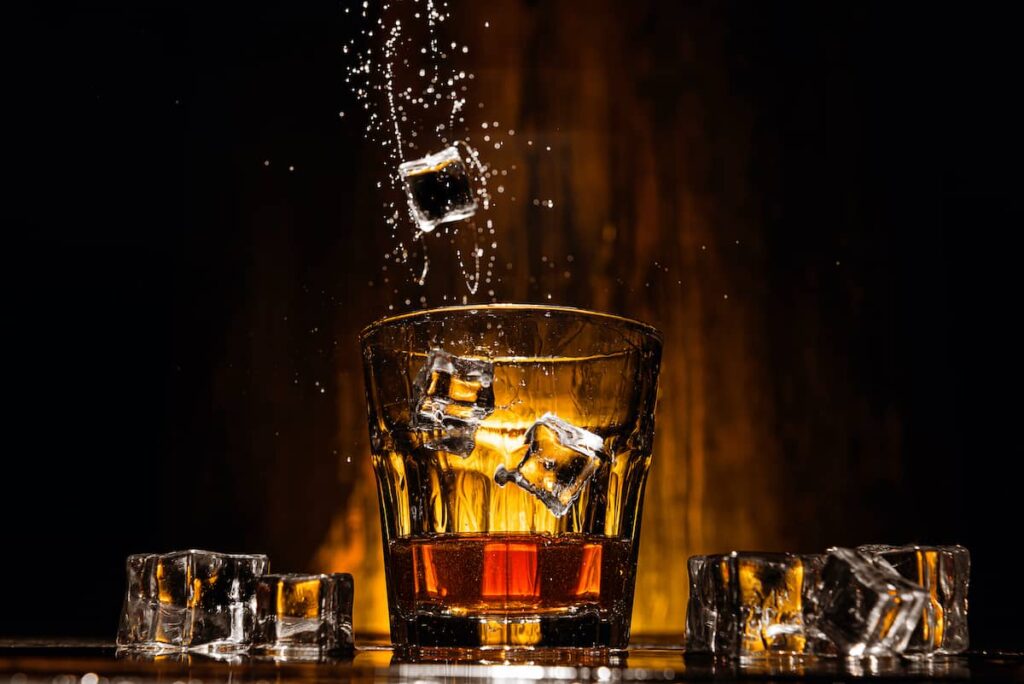The development of the liquid itself is only half the fight in the long and arduous process of making whisky, which relies on science and takes several years. Up to sixty percent of whisky’s flavor originates in the aged cask. Therefore the barrel is an essential element of the process.

Why Is Whisky Aged In Bourbon Casks?
Many of the world’s best whiskys are aged in previously used bourbon casks. These barrels are utilized not just for the flavor they add to the whisky (vanilla, for example) but also for their aesthetic value.
Since American law requires bourbon to be matured in new oak, the barrels formerly used to store the spirit are sometimes repurposed for the maturation of other types of whisky. After distilleries use all their barrels, they are left with an abundance that they sell to distributors worldwide.
Used bourbon barrels add some of the original spirit’s color and flavor to the new whisky they hold. About 60 percent of a whisky’s flavor originates from the aged barrel.
Irish whisky is aged in various barrels, including sherry, port, and wine barrels made from European wood and ex-bourbon barrels made from American oak.
The first fill doesn’t necessarily indicate that the barrel is brand new; rather, it signifies that the distillery is utilizing it for the first time and that the whisky is aged in it and is their first liquid to be poured in it.
Wood-Finishing A Whisky
Irish whisky must mature in oak barrels for at least three years before it may be bottled and consumed.
Using a wood treatment allows us to increase the complexity and richness of the final product. The kind of cask used and the duration of the maturing period account for 60-70% of the final whisky profile. It implies that the cask has affected not only the fragrances that fill your nose as you inhale your expression but also the flavors on your palate and the color of the whisky.
Whisky’s ultimate aroma, flavor profile, and appearance are all affected by how long it sits in oak casks, ranging from months to years.
Why Is Whisky Aged In Oak Barrels?
Although oak is the most popular wood used in the aging process, other types of wood are also employed. The reasons for this are countless.
Whisk barrels benefit greatly from being made out of oak because of the wood’s longevity. It has pores that enable the whisky within to breathe without making the container too porous to hold the liquor.
In certain nations, the whisky must be matured in oak barrels. Whisky in Ireland must be matured “for at least three years in wooden barrels, such as oak, not exceeding 700 liters (185 US gal; 154 imp gal) capacity,” according to the legislation. However, in Scotland, the whisky must be “matured in an excise warehouse in Scotland in oak barrels of a capacity not exceeding 700 liters, the time of that maturation being not less than three years” (Scotch Whisky Regulations).
Oak is still a viable alternative and the preferred choice for many distilleries, although rules in certain countries demand the use of oak, and laws in others require it to be wood.
Ex-Bourbon barrels and other oak casks that had previously carried liquids like fortified wines are commonly used to mature whiskys in Ireland, Scotland, and abroad.
Investing In Whisky Casks
Over the past decade, there has been a rise in the number of whisky enthusiasts who invest in barrels to acquire rare and valuable bottles of whisky. Rare whisky has outperformed many other luxury commodities, such as wine, art, purses, and vehicles, with a 478% increase in value over the previous decade, according to Knight Frank’s 2021 Wealth Report.
However, “liquid gold” investments aren’t only for the well-off who enjoy a good glass of bourbon. While it’s true that purchasing the world’s rarest and most unique whiskys might set you back a pretty penny, this isn’t necessarily the case. This is why it’s becoming more possible for the average whisky enthusiast to get in on the action.
Due to cask-sharing programs and distilleries selling individual barrels, investment in whisky is now more accessible than ever.